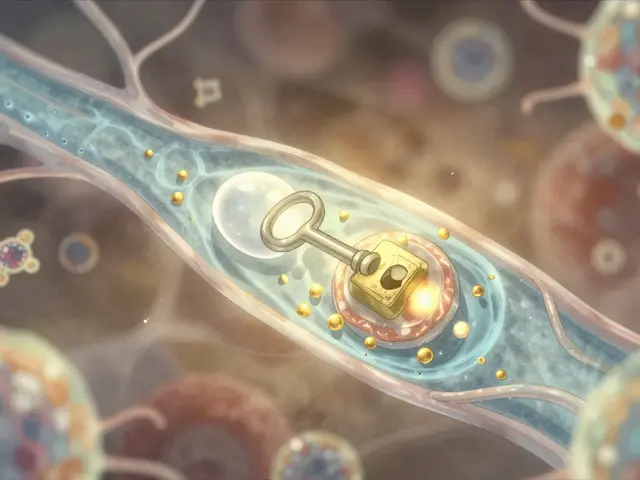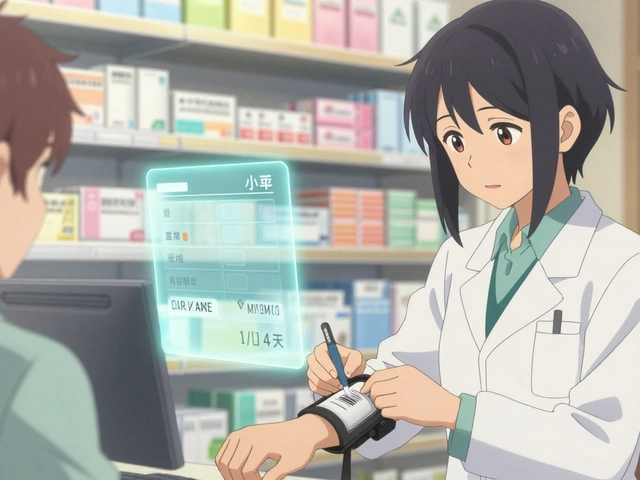Dealing with congestive heart failure is no walk in the park. It's not just about medications and medical routines; it's also about wrestling with a whole range of emotions. And let's face it, mental health plays a massive role here. The emotional rollercoaster can sometimes feel as daunting as the physical symptoms themselves.
Folks often find themselves anxious, constantly worried about 'what ifs.' Depression might rear its ugly head too, dragging down moods and motivation. Stress? Yep, that's quite the uninvited guest as well, making everything feel heavier than it should be.
But don't worry, it's not all doom and gloom. There are practical ways to tackle these emotional challenges. Whether it's learning to take one day at a time or finding little techniques to calm the mind, there are strategies that can help make life a bit smoother.
And if you're thinking of going it alone, maybe rethink that. There's enormous value in seeking professional help. Therapists, support groups, even online communities can offer insights and support you never knew you needed.
- Understanding Congestive Heart Failure and Mental Health
- Common Emotional Challenges Faced
- Practical Coping Strategies
- Seeking Professional Help
- Building a Supportive Environment
Understanding Congestive Heart Failure and Mental Health
So, you've heard the term congestive heart failure, right? It's when your heart isn't doing the best job at pumping blood. This means that some parts of your body might not get all the oxygen-rich blood they need, which sounds as stressful as it is. But here’s where it gets tricky—not only does it mess with your body, it can wreak havoc on your mental health too.
Imagine waking up every day worrying if you’ll have enough strength to do what needs doing or if your heart will play nice today. It’s no surprise that anxiety can creep in. Heart failure and mental health are interlinked more than folks realize. Research points out that about 20% of people with heart disease experience depression. That’s a decent chunk, and it suggests there's a real need to discuss mental health openly.
Why Mental Health Matters
A healthy mind can make managing physical conditions a whole lot easier. If you're feeling down or anxious, it can be tough to stick to treatment plans or even ask for help when you need it. This is why tackling mental health isn’t just some added bonus—it’s crucial.
What’s Going On in the Brain?
Scientists have studied how heart issues can affect the brain. Stress hormones, like cortisol, shoot up during these times, and if they're hanging around too long, they can lead to mood changes. It’s like a vicious loop where stress from the heart condition worsens emotional health, which then might worsen the heart condition. Yeah, it’s a lot.
If you ever find yourself needing real facts, check this: a study published in the Journal of the American College of Cardiology noted that people with heart failure who also struggled with depression had a 40% higher risk of getting hospitalized or experiencing more severe symptoms!
| Key Stat | Impact |
|---|---|
| 20% of heart disease patients | Suffer from depression |
| 40% higher risk | For those with both heart failure and depression |
So what's the takeaway here? Don't ignore the mind when dealing with heart troubles. If you're tackling congestive heart failure, checking in with your mental health isn't optional—it's essential.
Common Emotional Challenges Faced
When you're dealing with congestive heart failure, the physical symptoms are just part of the story. There's a good chance you're also facing a host of emotional challenges that just won't back down. Let's break down some of these feelings that often tag along with heart issues.
Anxiety and Worry
The constant worry about your heart condition can spin you into a cycle of anxiety. You might find yourself fixating on every little heartbeat or wondering if every tiny symptom is a sign of something serious. This chronic state of worry can really take a toll on your day-to-day life.
Depression
Feeling low or even depressed isn't uncommon for those grappling with heart failure. It's not just about feeling sad; depression can sap your energy and make you lose interest in things you used to enjoy. Remember, it's more than just a case of the blues—it's a serious condition that is closely linked with physical illnesses.
- Loss of interest in daily activities
- Lack of motivation
- Fatigue that goes beyond the physical symptoms
Stress and Its Impact
Stress can be a sneaky one, creeping up and multiplying when you're least expecting it. Everyday stressors combined with the burden of managing heart disease can amp up cortisol levels, which isn’t great for your heart or your mood. Managing stress becomes a full-time job on top of everything else.
Fear of the Unknown
One of the toughest aspects is the fear of the unknown. Not knowing what the future holds or when the next health scare might hit can be terrifying. This fear often leads to a cycle of avoidance, where you might hesitate to engage in activities you once loved.
| Emotional Challenge | Percentage of Patients Affected |
|---|---|
| Anxiety | About 50% |
| Depression | 30% - 40% |
| Stress | Around 60% |
Recognizing these emotional challenges is the first step in managing them. Knowing that these feelings are normal and that you're not alone can be oddly comforting. Tackling these issues head-on, with the right strategies and support, can make a world of difference.

Practical Coping Strategies
Tackling the emotional side of congestive heart failure might sound overwhelming, but with the right strategies, you can feel more in control. It's about finding what works for you and sticking with it.
1. Mindfulness and Relaxation Techniques
Meditation and deep breathing might be age-old techniques, but they're powerful for a reason. Spending even just a few minutes a day focusing on your breath can help reduce stress and keep anxiety at bay.
Consider trying out guided meditation apps like Headspace or Calm. They're user-friendly and can fit neatly into your routine without much fuss.
2. Regular Physical Activity
Exercise isn't just about keeping the body in check; it's a huge mood booster too. A simple walk around the block or a gentle yoga session can release endorphins that help lift spirits.
Before starting any new activity, though, it's wise to chat with your healthcare provider to ensure it's safe for your condition.
3. Maintaining a Routine
When everything feels chaotic, having a routine can provide a sense of stability. Think about structuring your day with time for meals, medication, rest, and relaxation.
- Set regular times for waking up and going to bed.
- Plan meals that are healthy and heart-friendly.
- Schedule in short, enjoyable activities.
4. Diet and Nutrition
Your diet plays a vital role in how you feel. Focus on delicious, heart-friendly foods. More greens, less sodium; more lean proteins, less processed junk. You’ll soon notice the difference in your energy and mood.
5. Connecting with Others
Don't underestimate the power of a good chat with a friend or family member. Whether it's in person or a quick video call, it can do wonders for your mindset.
Consider joining a support group where you can share experiences with others who truly understand what you’re going through.
6. Keeping a Journal
Writing down your thoughts can be incredibly freeing. It doesn't need to be anything fancy. Just jotting down how you feel, what you're grateful for, or any concerns can sometimes provide clarity and release.
Remember, you're not just coping with heart failure; you're living life with it, and these strategies can help make that life fulfilling and manageable.
Seeking Professional Help
When living with congestive heart failure, thinking about reaching out to a professional might seem overwhelming. However, getting help from professionals can be one of the most valuable steps in managing both your heart condition and mental health.
Therapy: A Safe Space to Talk
Cognitive Behavioral Therapy (CBT) and other counseling methods can be incredibly effective. Therapists are trained to help you work through anxiety and depression linked to heart disease. They can provide strategies to shift negative thought patterns and help initiate positive changes.
Why Talk to a Psychiatrist?
If mood dips are more than a passing phase, seeking a psychiatrist’s expertise might be a good idea. They can prescribe medication to balance the chemicals in your brain. Never underestimate how vital this support is in managing emotional well-being alongside physical health.
Support Groups
Linking up with people in similar situations can be quite heartening. Whether it's a local group in your community or an online gathering, sharing experiences is incredibly beneficial. These groups offer insights, empathy, and often, friendship.
The Role of Your Cardiologist
Don’t forget about your cardiologist when seeking help. They’ll have loads of experience handling emotional issues related to congestive heart failure. They can point you towards resources and professionals who specialize in the psychological sides of heart health.
Noticing the Signs
Sometimes you might not notice the signs yourself. Encourage family and friends to speak up if they see you struggling emotionally. Often, an outside perspective helps in recognizing when professional help might be needed.
Remember, asking for help is never a sign of weakness. It’s a step towards a better quality of life, managing both your heart condition and mental wellness.

Building a Supportive Environment
When you're grappling with congestive heart failure, having a rock-solid support system can make a world of difference. You're not just dealing with a health condition; you're also managing the mental game, and having the right people around you really matters.
Create a Safety Net of People
One of the first steps is surrounding yourself with people who truly understand your journey. This could be family, friends, or even a local support group. They don't need to have all the answers, but they do need to offer a listening ear and a shoulder to lean on.
- Heart Disease Support Groups: Look for local or online groups. You're not alone in this; many people share your experience, and connecting with them can be comforting.
- Family Communication: Be open with your family about what you're going through. Regular updates on how you're feeling can help them support you better.
- Professional Networks: If possible, rope in health professionals that can provide insights beyond the medical basics.
The Digital Advantage
In today's age, your smartphone can be a lifeline too. Various apps are designed to help manage congestive heart failure, track symptoms, contact medical professionals, or stay in touch with support groups through social media.
Studies show that people who engage with health-related apps are more proactive in symptom management and emotional awareness. Think of it as having a mini support center in your pocket.
Cultivate Positive Spaces
Creating a positive physical space at home can also boost your mental health. Whether it's having a cozy corner for relaxation or a hobby space to let your mind unwind, these small environmental tweaks add up. Simple changes like reducing clutter and letting in natural light can improve your mood and help reduce stress.







6 Comments
OMG YES THIS. I thought I was just being dramatic until my cardiologist said my anxiety was making my BNP levels spike 😭 Like, I’m not ‘overthinking’-my body’s screaming and no one gets it. I cry in the shower every morning just to avoid my husband seeing. But I started journaling and now I text my sister 3x a day just to say ‘heart feels okay today.’ Small wins, right? 🥲
heart failer is so real. i read all this and i was like… wait so its not just my heart? my mind too?? i thought i was just lazy or depressed cause i dont wanna get up. but now i think its the cortisol thing. also i tried meditating but i fell asleep. is that normal??
Thank you for this profoundly thoughtful and meticulously researched piece. The integration of psychological metrics with cardiovascular outcomes is not merely relevant-it is imperative. I have reviewed the JACC study cited, and the 40% increased hospitalization risk among comorbid depression patients is statistically significant (p < 0.001). I would strongly encourage all patients to undergo formal PHQ-9 and GAD-7 screenings quarterly, and to engage with licensed clinical psychologists trained in cardiac rehabilitation protocols. This is not ancillary care-it is foundational to survival.
Let me tell you something they don’t want you to know. The FDA approved beta-blockers for heart failure in 1999… but the same year, the pharmaceutical industry funded 17 ‘mental health awareness’ campaigns targeting cardiac patients. Coincidence? Or is this a multi-billion dollar psy-pharma synergy to monetize anxiety? They’re not helping you-they’re creating dependency. Your cortisol isn’t from stress-it’s from the damn pills. Stop taking them. Go primal. Eat salt. Walk barefoot. The system is rigged. I’ve seen it.
I’ve been a nurse for 28 years, and I’ve watched hundreds of patients wrestle with this exact duality-body betraying them, mind spiraling in silence. What I’ve learned: healing isn’t about fixing the heart or the mind alone. It’s about rebuilding trust-in your body, in your days, in the quiet moments between heartbeats. You don’t need to be ‘fixed.’ You need to be held. And if no one is holding you yet? Start by holding yourself. Breathe. One breath. Then another. That’s enough.
Okay but hear me out-what if the real enemy isn’t the heart failure… but the concept of ‘time’ itself? We’re all just carbon units trapped in linear progression, and our hearts are just clocks ticking down. The anxiety? That’s your soul screaming against entropy. Meditation? It’s just a Band-Aid on the cosmic wound. The real cure? Radical acceptance of impermanence. Also, I found a YouTube video of a monk who survived heart failure by chanting in Sanskrit for 4 hours a day. Link in comments. We’re all just stardust with arrhythmias. 🌌❤️
Write a comment